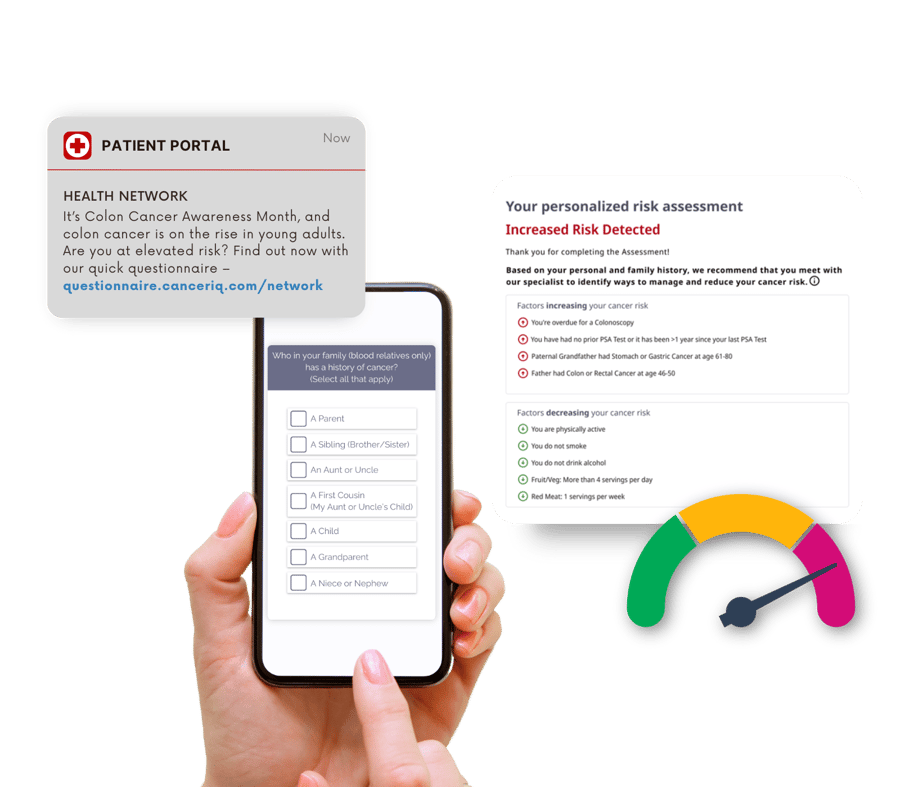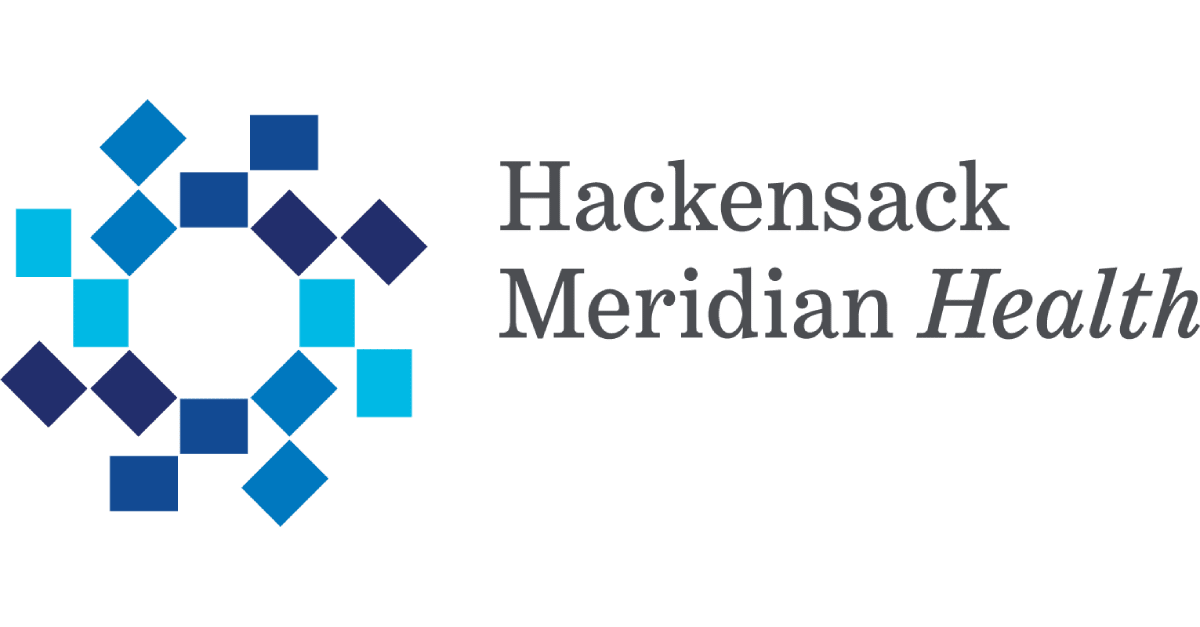Acquire and retain high-risk patients with CancerIQ Reach
Convert at-risk consumers into motivated patients, even before they set foot in a clinic. Deliver personalized care pathways for the most common cancers and help patients manage their health over time. Grow high-value service lines and generate more revenue. Become the leader in your market for precision cancer care with CancerIQ Reach.

Reach into your community to activate high-risk patients
CancerIQ Reach enables health systems to deliver targeted, multichannel outreach campaigns that engage patients in online cancer risk assessment, personalized education, and next-best steps for cancer prevention and early detection. We offer population segmentation and marketing toolkits so health systems can easily connect with the right patients, at the right time, whether that’s through media, social media, patient portals or email.

Improving outcomes at the population level
Each person’s cancer risk is based on a unique combination of factors, including family history, lifestyle choices and screening adherence. But the current healthcare system relies on a one-size-fits-all, age-driven approach to cancer screening and prevention — meaning many patients receive late-stage diagnoses that could have been detected earlier or avoided altogether.

Female: age 46
Grandmother: ovarian cancer
Father: sarcoma (2x)
Meets NCCN testing criteria
Pathogenic mutation: TP53
LATE-STAGE OVARIAN CANCER

Female: age 43
Grandmother: breast cancer
Tyrer-Cuzick Lifetime Risk: 31%
Genetic testing: N/A
Breast MRI: None
LATE-STAGE BREAST CANCER

Male: age 62
Lifestyle: Previous smoker
Smoking history: 25 pack years
Smoking flag in EMR: YES
Low-dose lung CT scan: NO
LATE-STAGE LUNG CANCER

Male: age 58
Family history: Unknown
Colonoscopy recco'd: YES
Colonoscopy adherence: NO
Other CRC Screening: NO
LATE-STAGE COLON CANCER
Launch targeted outreach campaigns

1. CONNECT
Powerful audience segmentation tools and integrated marketing campaigns make it easy to define and reach target populations.

2. ASSESS
Our comprehensive risk assessment automates Tyrer-Cuzick and NCCN models to capture every patient with elevated cancer risk.

3. EDUCATE
Easy-to-understand results ensure patients understand their cancer risk and how to take action within your health system.
4. PERSONALIZE
Personalized care pathways engage high-risk patients in their health over time and enable providers to track downstream impact.5. SHARE
Built-in sharing capability empowers patients to easily share results with family members and encourage them to learn their cancer risk.Why CancerIQ?
Achieve patient acquisition and retention goals
Grow downstream revenue and measure ROI
Meet community outreach accreditation requirements
See how health systems are engaging more patients with our best-in-class solution
Health systems are using CancerIQ’s platform and marketing services to identify and engage more high-risk patients in their communities.
Nebraska Medicine's campaign targeting patients with a history of smoking led to a +270% monthly increase in low-dose CT scans scheduled at the lung cancer screening clinic

"CancerIQ provided us with the technology and the expertise to efficiently identify and query patients eligible for a cancer risk assessment, contact patients through targeted outreach, and determine whether patients were eligible for additional services based on their responses. This led to a 6X increase in completed risk assessments, preventive screenings and earlier diagnoses — all without overburdening our IT and marketing teams."
— Rachael Schmidt, Program Director for Cancer Survivorship & Cancer Risk, Nebraska Medicine

“This cutting-edge program we are offering at our new Hennessy Institute helps us fulfill a promise that we have made to transform health care and to be the leader of positive change, by improving the health of all of our communities."
— Robert C. Garrett, FACHE, CEO, Hackensack Meridian Health

